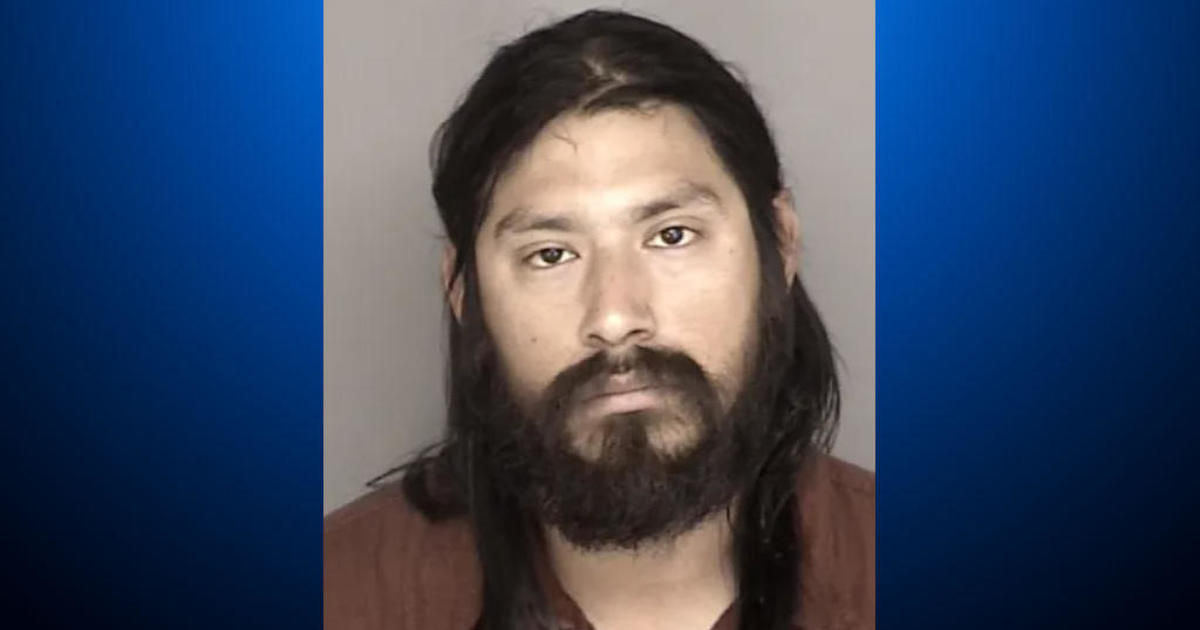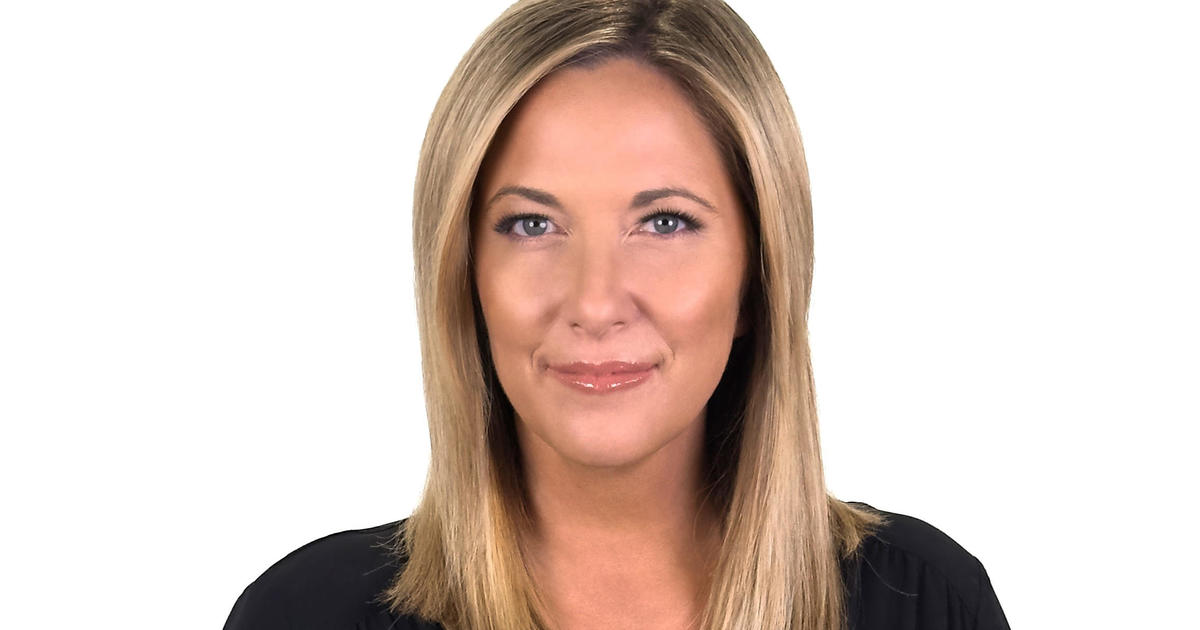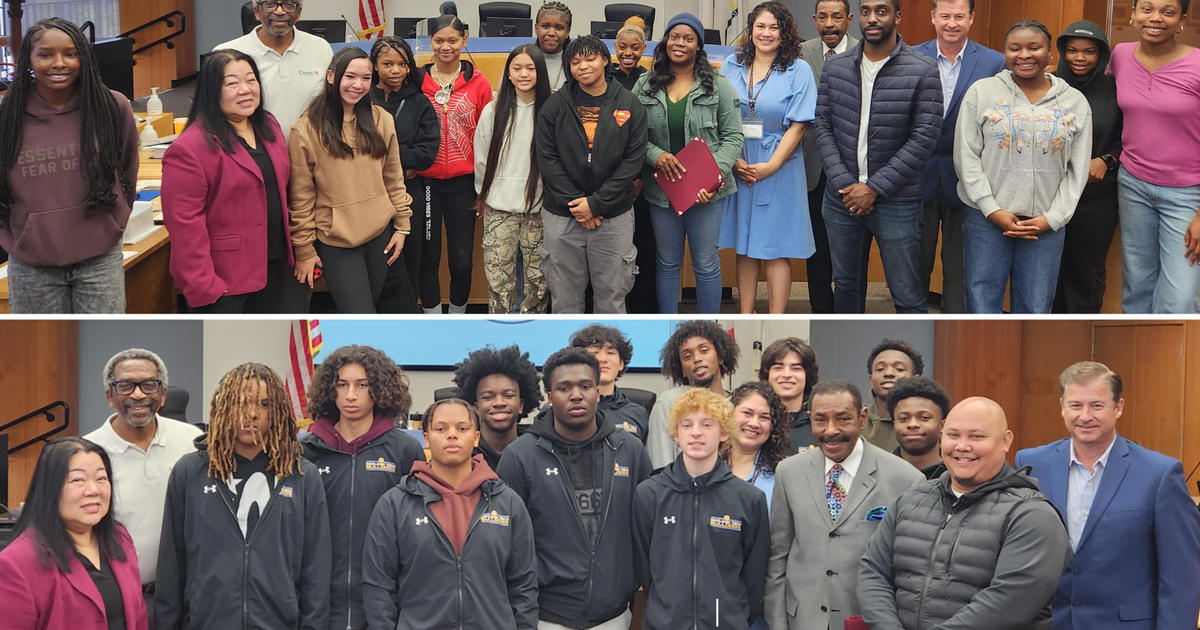Student Triumphs Over Abuse, Foster Care; Graduates From Law School
OAKLAND (KPIX 5) -- Kimberly Armstrong looked nervous as she approached the stage at the University of San Francisco, about to get her diploma as a Law School graduate. "I'm ecstatic, even though I don't look like it," she told me later. Shy by nature, she had good reason to be overwhelmed with the depth of her accomplishment as she walked across the stage to receive her diploma. "It makes it more meaningful…because it's not supposed to be done."
Not supposed to be done, if you're a foster child from East Oakland, is what she meant. And she accurately described that expectation based on the numbers- more than half of the foster kids in California don't even finish high school. They have a 1-3% chance of finishing college and there are no available statistics about graduate school. Her brother Alfonso put it into words," I'm starting to realize more how big of a boundary it is that we are crossing to have come from poverty, from nothing, to make it here.
Both brothers Alfonso and Jose were there to celebrate with Kimberly. They share the tight bond that foster siblings usually have, especially ones who fear being separated.
But in this case there is an added reason for that closeness- Kimberly pretty much raised the boys as children, after their mother was shot and killed right in front of them. Kim was 5, the boys much younger.
They were placed in the custody of their grandmother who was an alcoholic and abusive.
Food was just one issue. "Sometimes go days without eating, or nights without eating," Kimberly said, describing their life. "That's when school came as an advantage because they gave us the free lunch. So we always came to school for free lunch. Our main meal of the day." In Oakland, where Kimberly grew up, the latest census shows nearly 70 percent of students in the Oakland school district now qualify for free or reduced-priced meals at school. And as all educators know, if you don't eat, you cannot learn.
But for Kimberly and her brothers, the worst part was the abuse. They lived in fear of their grandmother. "She would come home drunk and get all crazy and that's when she started hitting on my brothers complaining we did something wrong and she'd yell, clean up the house," said Kimberly. Then thoughtfully, she added, "She really, really beat up on my little brothers a lot, actually."
It is an invisible and secretive problem that often only surfaces when it's bad enough for people outside the home to recognize. According to the Child Welfare League of America statistics, 49,823 children were abused or neglected in California in 2009. Experts all agree it's an underreported crime. In Kimberly's case, the abuse went on for 8 years.
Finally, on one particularly violent night, Kimberly could see the situation was getting too dangerous to tolerate.
"It was just getting progressively worse so that's when I told them to pack whatever you need and lets go. And I was really scared to go because I didn't want to get caught. Then it would have been it for all of us."
They waited until their grandmother passed out from drinking and Kimberly led her two little brother out in the rain. They caught the bus to run away.
They escaped to an aunt's home and that is where they were when we met Kim as a high school senior at Oakland Technical High. She was an honors student and class president there when she was selected for "Students Rising Above". When Kim went off to UC Berkeley and that foster home too became abusive as well and the boys would have to run away again.
It is typical for foster children to have to change home often and every time they do, they lose precious time in school. But the expectations had been set for the boys, and a pathway as well. Both of them became Students Rising Above. They were both lucky enough to get scholarships at a parochial school, St Mary's College Prep in Berkeley, which gave them much needed emotional support and eased their way into college. Those opportunities came through different channels but none would have been possible had it not been for the courage of a 12-year-old girl so many years ago in East Oakland. In 2011, all three siblings spoke at SRA's fundraising gala and her brothers made it clear in no uncertain terms: "Kimberly took it upon herself to make sure that we survived. She saved our lives."
From Kimberly's perspective it was the flip side of that answer. Over the years I have asked her how did you do it? - referring to her success in school and her ability to overcome such abuse Consistently she would answer, I would do it for my brothers.
The next time we caught up with Kimberly Armstrong was in 2006, at the Latino Graduation Ceremony from UC Berkeley, with her brother Jose by her side. She was radiant. "This shows them that as their role model that I've made it and they can make it," she said. "Words can't even describe how much this means to us to succeed in life after all she's been through," said Alfonso. Jose said, "it's like a dream come true."
Four years later, Jose Taylor's own dream came true as he graduated from Manhattenville University in New York.
In 2012, Alfonso got his degree at Ohio Wesleyan.
I remember when I interviewed Jose when he was a senior in high school in 2006 and he described how they would comfort each other after one of them had been beaten. They would instinctively hug each other, and Jose explained, "[We would] talk about dreams we had. Like my sister being a lawyer. You'll have a big house and we'll come live with you, and we'll go to college and stuff."
At Kimberly's law school graduation, I reminded him of that comment and asked him if he always thought this would happen. Shaking his head and in tears, he answered, "I'm just proud." Alfonso spoke up, "You have a 1% chance of graduating college as a ward of the state, and the fact that all 3 of us have done it. That just tells me more people can do it." We hope so, but there was clearly something about the Taylor kids ability to hold tightly to each other that had ensured their survival. Their mentor, Jane Spica said it best, "You can get beaten, but if a sister or brother or if your family member holds you and says it's ok, then you can survive and I think that's why they survived. They had each other."
They had each other, but it was Kimberly who led the way.
LINKS:



